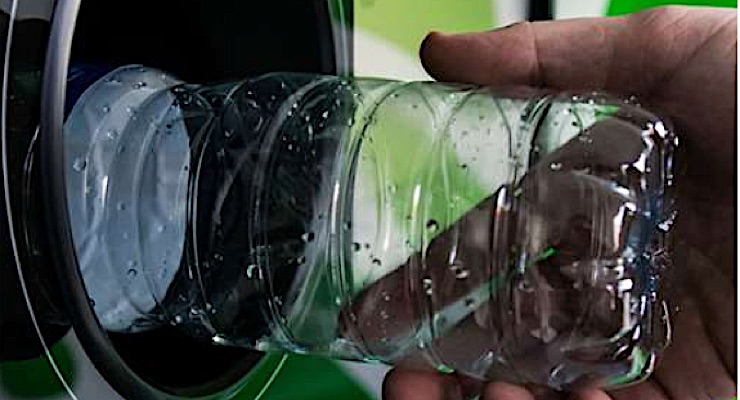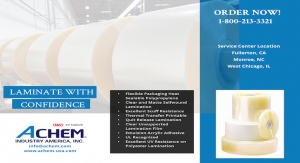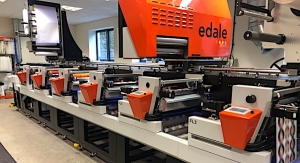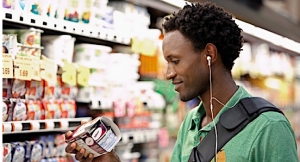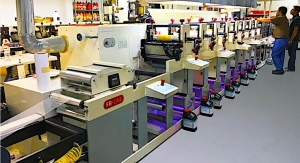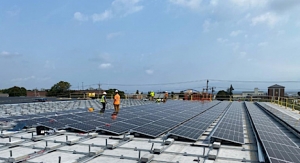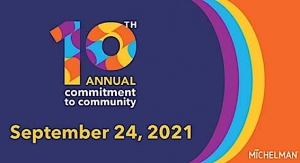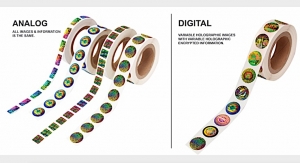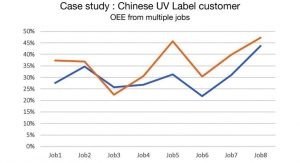06.17.21
UPM Raflatac has helped launch The US Plastics Pact's (“US Pact”) “Roadmap to 2025,” an aggressive national strategy illustrating how the US Pact, UPM Raflatac and fellow signatories, known as activators, will achieve each of the US Pact’s four 2025 targets through specific actions, responsibilities, and interim timeframes to realize a circular economy for plastics in the United States by 2025.
Launched in August 2020, The US Plastics Pact is a consortium led by The Recycling Partnership and World Wildlife Fund (WWF) as part of the Ellen MacArthur Foundation’s global Plastics Pact network, which unites a holistic ecosystem of cross-industry stakeholders behind a common vision and national strategy to address plastic waste at its source by 2025.
“It has been exciting to be part of the US Plastics Pact since its inception and work with these incredible and passionate individuals. The launch of the Roadmap illustrates how far we have come in a very short time. We have set some ambitious goals and laid out the details of our execution plan in the Roadmap,” says Kyle Strenski, business director, HPC, food and beverage at UPM Raflatac Americas.
UPM Raflatac joins other stakeholders across the plastics value chain in achieving systemic change and accelerating progress toward the following 2025 targets by inspiring and supporting upstream innovation through coordinated initiatives such as rethinking products, packaging, and business models in order to transition away from today’s take-make-waste model to a circular economy where plastics never become waste:
The US Pact’s Roadmap is designed to kick-start action and help US industry leaders and packaging producers develop a national strategy, advance shared goals, and measure the strength of progress through annual reporting. This national strategy will assist Pact activators in reaching ambitious goals by 2025 that they could not otherwise meet on their own through sharing knowledge, optimizing investments, identifying gaps, overcoming systemic barriers, and implementing policies.
The Roadmap holds UPM Raflatac and other activators of the US Pact accountable to sustainability objectives by creating the pathway in which companies, governments and NGOs can successfully ensure that plastics remain in the US economy and out of the environment for years to come.
Launched in August 2020, The US Plastics Pact is a consortium led by The Recycling Partnership and World Wildlife Fund (WWF) as part of the Ellen MacArthur Foundation’s global Plastics Pact network, which unites a holistic ecosystem of cross-industry stakeholders behind a common vision and national strategy to address plastic waste at its source by 2025.
“It has been exciting to be part of the US Plastics Pact since its inception and work with these incredible and passionate individuals. The launch of the Roadmap illustrates how far we have come in a very short time. We have set some ambitious goals and laid out the details of our execution plan in the Roadmap,” says Kyle Strenski, business director, HPC, food and beverage at UPM Raflatac Americas.
UPM Raflatac joins other stakeholders across the plastics value chain in achieving systemic change and accelerating progress toward the following 2025 targets by inspiring and supporting upstream innovation through coordinated initiatives such as rethinking products, packaging, and business models in order to transition away from today’s take-make-waste model to a circular economy where plastics never become waste:
- Define a list of packaging to be designated as problematic or unnecessary by 2021 and take measures to eliminate them by 2025.
- 100% of plastic packaging will be reusable, recyclable, or compostable by 2025.
- By 2025, undertake ambitious actions to effectively recycle or compost 50% of plastic packaging.
- By 2025, the average recycled content or responsibly sourced bio-based content in plastic packaging will be 30%.
The US Pact’s Roadmap is designed to kick-start action and help US industry leaders and packaging producers develop a national strategy, advance shared goals, and measure the strength of progress through annual reporting. This national strategy will assist Pact activators in reaching ambitious goals by 2025 that they could not otherwise meet on their own through sharing knowledge, optimizing investments, identifying gaps, overcoming systemic barriers, and implementing policies.
The Roadmap holds UPM Raflatac and other activators of the US Pact accountable to sustainability objectives by creating the pathway in which companies, governments and NGOs can successfully ensure that plastics remain in the US economy and out of the environment for years to come.

